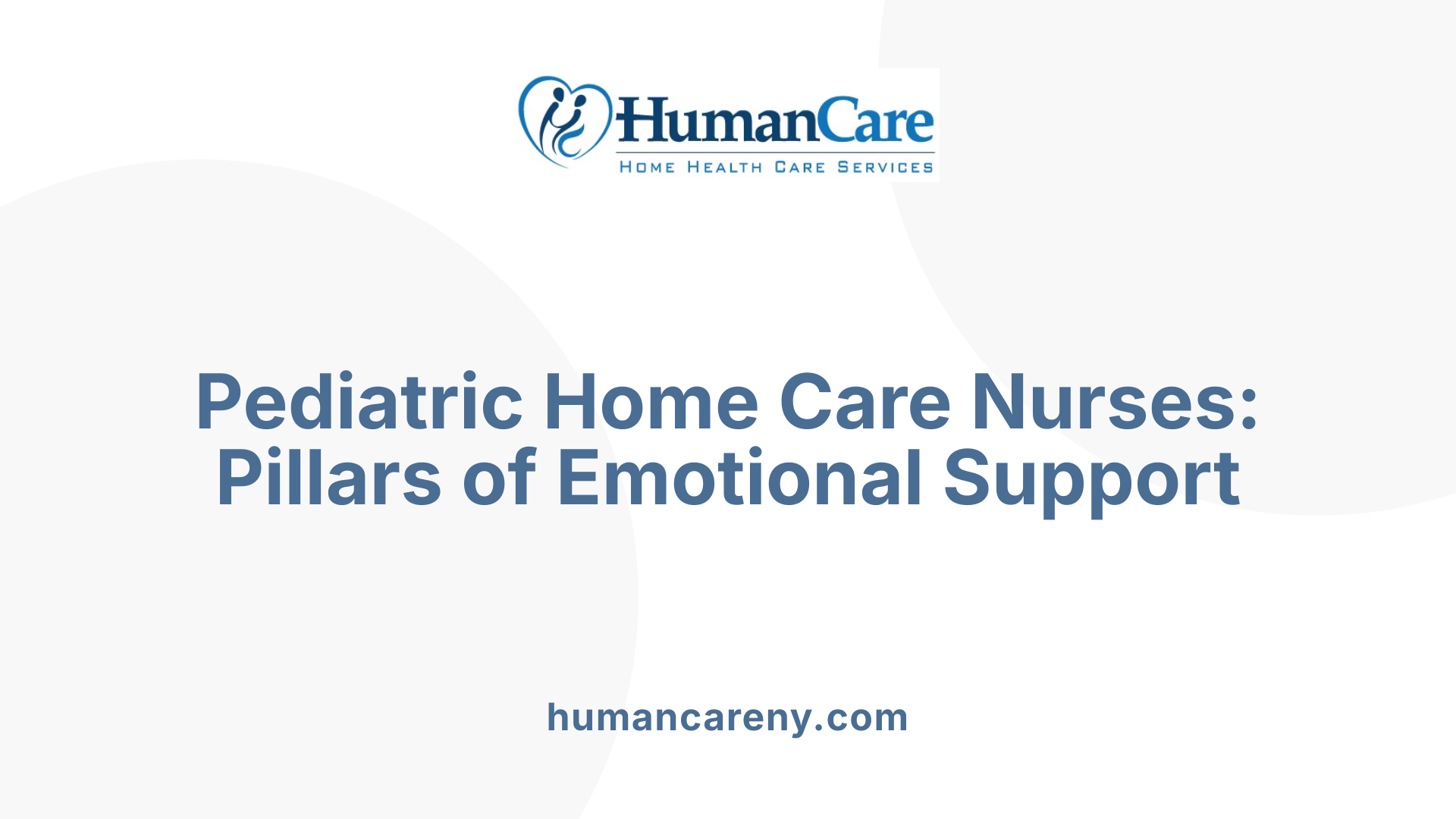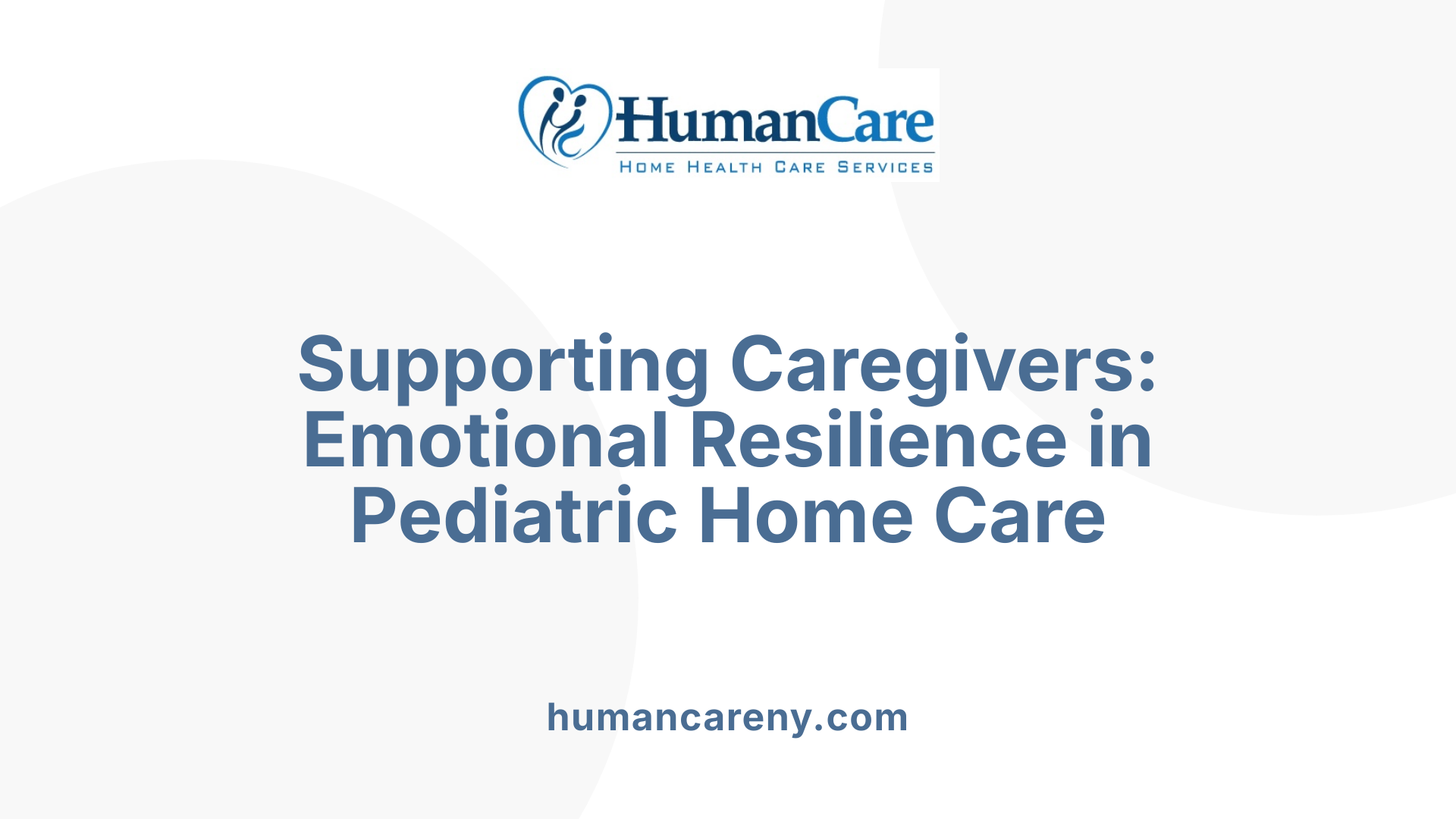Understanding the Emotional Landscape of Pediatric Home Health
Families caring for children with complex medical needs at home face profound emotional challenges alongside the practical demands of caregiving. Pediatric home health care offers vital medical and developmental support but also deeply impacts the emotional well-being of these families. This article explores how in-home care services shape family life, the emotional effects of caregiving, and the essential role of coordinated support in fostering resilience and stability.
Complex Needs, Complex Emotions: The Family Caregiving Journey
Challenges faced by families of children with complex medical needs
Families caring for medically complex children at home confront multiple challenges. These children often require specialized therapeutic interventions and depend on life-sustaining technologies like ventilators or feeding tubes. Managing multiple organ system issues demands vigilance and skill from caregivers. Discharge planning itself is complex, encompassing assessments of medical stability, family readiness, and home environment safety. This multifaceted responsibility can be overwhelming.
Emotional impact of ongoing caregiving responsibilities
The emotional demands on families are significant. Caregiving involves constant attention to the child’s health needs, which can lead to chronic stress and social isolation. Family relationships may be strained under the weight of these obligations. The ongoing need to learn new skills and adjust to evolving care routines compounds emotional fatigue. Pediatric Home Care Nurses play a crucial role by offering emotional support that positively affects family well-being and stability.
Training and navigating healthcare systems
Families must navigate complex healthcare systems while managing their child’s care at home. This includes coordinating with multiple healthcare providers and understanding authorizations. Training is vital to equip families with coping strategies and care skills. Organizations like Thrive SPC assist by providing education, 24/7 clinical support, case management, and personalized care guides. This comprehensive support helps families adapt and reduces the stress of complex medical caregiving.
In summary, families of children with complex medical needs face increased stress and emotional burdens due to demanding caregiving responsibilities and system navigation. Support through training and coordinated care is essential to help them manage this challenging journey effectively.
The Role of Pediatric Home Care Nurses in Emotional Support

How do pediatric home care nurses support the emotional well-being of families?
Pediatric home care nurses play a vital role in supporting families emotionally as they care for children with complex medical needs. These nurses offer compassionate, continuous one-on-one care that helps families feel more stable and less isolated during challenging times. Their presence provides crucial emotional support, which positively impacts the family’s overall well-being.
Building long-term relationships with families
Home care nurses often develop deep, long-lasting relationships with both the child and family. This ongoing connection fosters trust and comfort, creating a supportive environment that adapts to the child's changing needs. Reliable nursing care offers families a sense of security and continuity, which is essential for managing chronic conditions over time.
Skills and coping strategies taught to families
Beyond medical care, pediatric nurses empower families by teaching practical skills and coping strategies. This education helps families confidently handle medical equipment, therapeutic routines, and daily care tasks. Additionally, nurses provide guidance on emotional adjustment, helping caregivers manage stress and build resilience while navigating complex healthcare systems. This comprehensive support enables families to thrive in their caregiving roles.
From Hospital to Home: Managing the Transition and Emotional Stress

Why is transitioning from hospital to home a significant emotional challenge for families?
Moving a child with complex medical needs from the hospital to home is a highly emotional and challenging process for many families. The transition involves detailed discharge planning that carefully assesses the child's medical stability, the safety of the home environment, and the readiness of the family to provide complex care. Families must quickly adapt to new caregiving roles often involving life-sustaining technology such as ventilators or feeding tubes.
This shift can provoke feelings of anxiety and uncertainty as parents and caregivers take on significant responsibility outside the structured hospital setting. The demands of managing medical equipment, coordinating multiple healthcare providers, and ensuring proper developmental supports can feel overwhelming.
Importance of discharge planning and family readiness
Effective discharge planning is critical to ensuring a smooth transition. This process evaluates medical and home needs, educates families, and coordinates multidisciplinary teams, including nurses, therapists, and specialists. Preparing families through training and support reduces risks and builds confidence.
A coordinated approach by the medical home, including case management and 24/7 clinical support, helps families feel supported and informed. This accompaniment decreases stress by providing clear guidance and resources before and after discharge.
Impact on family's emotional well-being
The ongoing caregiving responsibilities and complex coordination required can place a heavy emotional burden on families. Stress, social isolation, and feelings of burnout are common challenges faced by those caring for medically complex children. Pediatric home care nurses play a vital role by offering skill-building, coping strategies, and compassionate emotional support.
By fostering strong relationships with families and delivering personalized care in a familiar environment, home health care significantly improves family resilience and quality of life. It helps reduce anxiety associated with hospital visits, giving families more quality time together and enabling children to thrive at home.
Family Dynamics and Emotional Health Under Pediatric Home Care

Effects of Caregiving on Family Relationships
Caring for medically complex children at home places significant emotional and physical demands on families. The ongoing responsibility can lead to increased stress, which sometimes strains relationships among family members. The need to provide round-the-clock care, learn medical procedures, and coordinate services often leaves caregivers feeling overwhelmed. Yet, involvement in the child's care can also create a shared purpose that strengthens familial bonds in many cases.
Social Isolation and Support Systems
Families frequently face social isolation due to the intensive nature of caregiving. This isolation can negatively impact emotional health, compounding stress and potentially leading to feelings of loneliness. Pediatric home health care teams play an essential role by offering continuous support, providing not only medical assistance but also emotional guidance. Programs like case management and 24/7 clinical support help families build a support network, reducing isolation.
Balancing Family Involvement and Child Autonomy
Home health care encourages active family participation in daily care, fostering a sense of control and confidence among caregivers. This involvement empowers families to make decisions tailored to their child's unique needs while respecting the child's autonomy, especially in adolescent years. Striking this balance ensures that care aligns with both medical requirements and family preferences, promoting better emotional well-being for everyone involved.
How Does Pediatric Home Health Affect Family Relationships and Social Life?
The intensive caregiving required by pediatric home health can heighten stress within family relationships and often leads to social isolation. Nevertheless, through coordinated care and the involvement of multidisciplinary teams, families receive essential support and education. This support enables shared decision-making and participation, which can ultimately strengthen family bonds. Pediatric home health therefore has a complex but potentially positive effect on family relationships and social life, provided families have adequate resources and support.
Benefits of In-Home Pediatric Care on Family Emotional Well-being

What emotional benefits do families gain from pediatric home health care?
In-home pediatric care significantly reduces the frequency of hospital visits. This decrease in hospital stays leads to fewer disruptions in family life and lowers anxiety for both the child and their family members. Families often find that the comfort and familiarity of the home environment create a calmer and more emotionally supportive atmosphere than the clinical hospital setting.
How does the home setting provide comfort and familiarity?
Children receive care surrounded by their loved ones, personal belongings, and familiar routines, which promotes emotional stability and reduces stress. This environment helps children to thrive and supports their social and emotional development by allowing them to maintain regular interactions within their community.
What role do personalized care plans and continuity of care play?
Personalized care plans tailored to each child’s specific medical and family needs foster trust between families and the healthcare team. This individualized approach ensures that medical interventions align with family preferences, strengthening their involvement. Continuity of care delivered by a consistent team enables proactive monitoring and timely adjustments in treatment, reducing complications and reinforcing emotional resilience.
Together, these factors contribute to an improved quality of life for children with complex medical needs and their families, offering emotional support and a sense of stability in challenging circumstances.
Supporting the Caregivers: Emotional Challenges of Pediatric Home Health Workers

What emotional challenges do pediatric home health workers encounter, and how does this affect families?
Pediatric home health workers face significant emotional and mental health challenges as they care for medically fragile children. Common issues include compassion fatigue, stress, and depression, often triggered by witnessing ongoing pain and complex medical needs in young patients. This emotional toll can affect how caregivers interact with their own families, a phenomenon known as transference, where feelings about patients influence personal relationships.
Compassion fatigue and transference
Compassion fatigue arises from the intense, prolonged caregiving required for children dependent on life-sustaining equipment or specialized therapies. This emotional exhaustion can reduce workers’ ability to provide empathetic care and may impact their overall well-being. Transference, meanwhile, can blur boundaries between professional responsibility and personal life, creating additional stress.
Importance of resources and support for workers
Providing adequate support and resources is essential to help pediatric home health workers manage these emotional challenges. Access to counseling, peer support, and training on coping strategies fosters resilience. Encouraging open communication about mental health and ensuring workers know how to request help improves workplace culture. These support mechanisms not only protect workers’ emotional health but also enhance the quality of care families receive, reinforcing trust and stability in home health environments.
Building Resilience Through Compassionate Pediatric Home Care
Pediatric home health care is not only a medical necessity but an emotional journey for families and caregivers alike. Through multidisciplinary support, compassionate nursing, and coordinated care plans, families can find stability and hope amid challenges. Recognizing and addressing the emotional impact on both families and care workers fosters resilience and ensures that children with complex medical needs thrive in the comfort of home, surrounded by love and expert care.



